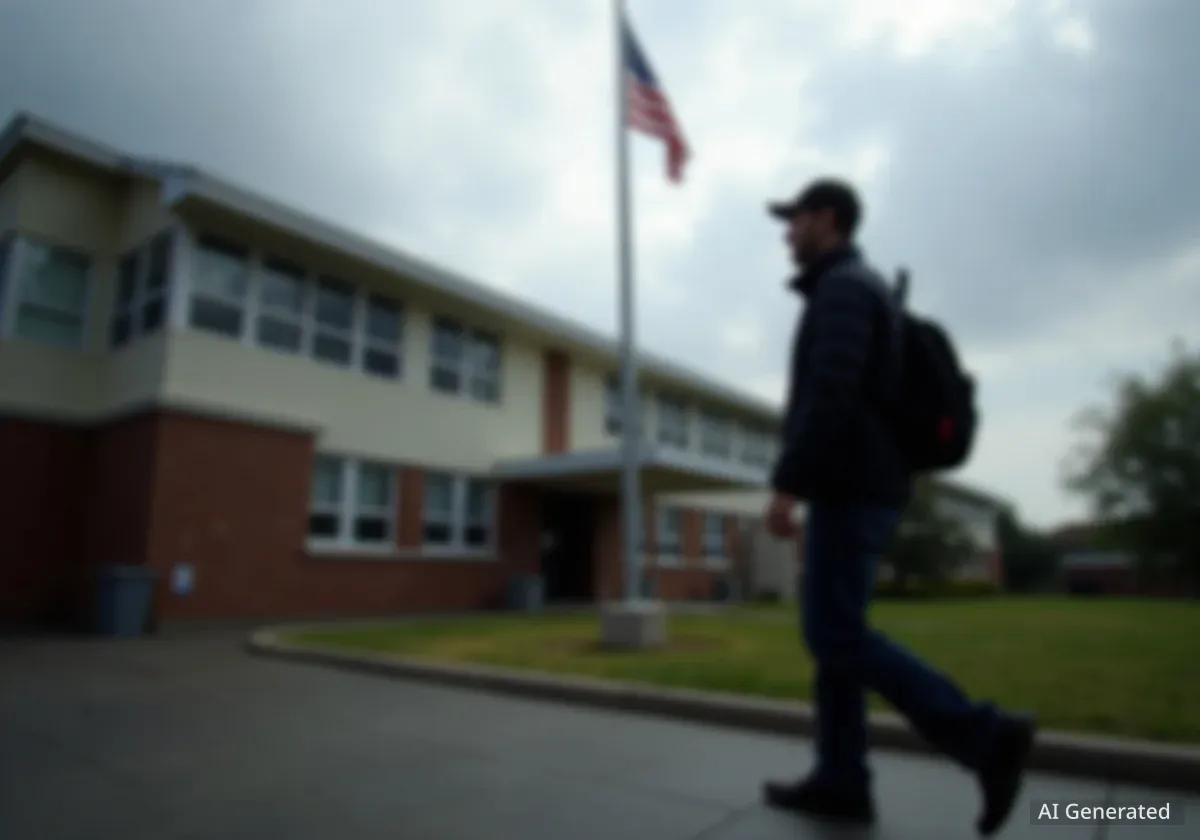An attorney for an Auburn Junior High School teacher says the Auburn Enlarged City School District is failing to protect his client's First Amendment rights. The teacher was placed on administrative leave following a social media post she made after the assassination of conservative activist Charlie Kirk.
The teacher, Kasha Fletcher, has since returned to the classroom, but her lawyer, J. Justin Woods, argues the district's response has empowered those who seek to suppress protected speech.
Key Takeaways
- An Auburn teacher, Kasha Fletcher, was put on administrative leave for a social media post about conservative activist Charlie Kirk.
- Her attorney, J. Justin Woods, claims the school district has been "complicit" in suppressing her First Amendment rights.
- The district's own policy acknowledges employees' rights to engage in political activities and address public concerns.
- The teacher and her attorney are now considering their legal options following the incident.
Details of the Social Media Controversy
The situation began after Kasha Fletcher, an art teacher at Auburn Junior High School, made a social media post on September 10. The post was made in response to the assassination of Charlie Kirk, a prominent conservative figure.
According to a screenshot shared by critic Caleb Slater, a former New York State Senate candidate, Fletcher described Kirk as a "bigoted 'whites only' public speaker." Slater accused Fletcher of "gloating" over the event and encouraged the public to contact the school district.
Following the public outcry, the Auburn Enlarged City School District placed Fletcher on administrative leave. Her attorney, J. Justin Woods, confirmed she was told the leave was for her own safety. Fletcher has since returned to her teaching duties.
Public Reaction and Threats
The social media post and subsequent criticism led to significant public reaction. Several community members spoke about the issue during a school board meeting on September 23. Reports also indicate that Fletcher and other teachers facing similar criticism have received death threats.
Attorney Alleges Failure to Protect Constitutional Rights
J. Justin Woods, the attorney representing Fletcher, has strongly criticized the school district's handling of the matter. He argues that the district's actions have inadvertently supported a campaign to silence speech.
"The school, in its handling of this, is complicit in that," Woods stated. "That unfortunate approach resulted in empowering a vocal minority to continue to try to suppress speech they disagree with."
Woods pointed out that the district's response seems to contradict its own official policies. He highlighted a statement from Superintendent Dr. Misty Slavic issued on September 15, which described the situation as a personnel matter. Woods noted the statement made no mention of the teacher's constitutional rights or the district's social media policy.
Contradiction with District Policy
The district's policy manual addresses employee conduct on social media. According to Woods, the manual states that the district takes "no position" on how employees use social media during their personal time.
Furthermore, the policy explicitly recognizes the rights of its employees. It states the district "recognizes the right of its employees, as citizens, to engage in political activities and to exercise their constitutionally protected rights to address matters of public concern."
A Question of Professionalism
While the district's policy encourages employees to "maintain the highest levels of professionalism," it does not restrict their right to comment on controversial topics outside of their work duties. Woods questioned the precedent this incident could set for all district employees.
School Board and Administration Remain Silent
During a school board meeting on September 23, six speakers addressed the board about the social media posts from teachers. The board listened for the allotted 15 minutes but did not issue a response or comment on the matter.
Superintendent Dr. Misty Slavic has consistently declined to comment further on the specifics of Fletcher's case, citing it as a confidential personnel issue. In her September 15 statement, she assured the public that the district was taking their concerns "very seriously" and would handle the matter according to law and policy.
However, Woods believes this silence is a critical failure. He argues that the administration and the school board have a responsibility to publicly defend their employees' rights when they have not violated any policies.
"The actions the school district and administration have taken have been designed to quell speech," Woods said. "I think it's incredibly important for the school board, if the administration isn't going to, to stand up and protect the rights of their teachers for not doing anything but exercising their constitutionally protected speech."
Next Steps and Legal Considerations
The future of the case remains uncertain. Woods has confirmed that he and Kasha Fletcher are currently reviewing all available legal options. He also stated that he is unaware of the current status of any internal investigation the district may be conducting.
The core of the issue revolves around where to draw the line between a public employee's professional responsibilities and their private rights as a citizen.
"These teachers didn't do anything wrong in the classroom. They didn't do anything wrong in their posts except engage in debate on a controversial topic," Woods explained. He raised further questions about the implications of the district's actions.
- Will the district begin policing all employee social media accounts?
- Could other forms of personal expression, like bumper stickers, be subject to scrutiny?
- What precedent does this set for other teachers who wish to comment on public affairs?
The resolution of this case could have significant implications for the Auburn Enlarged City School District and its employees regarding the balance between professional conduct and the fundamental right to free speech.





